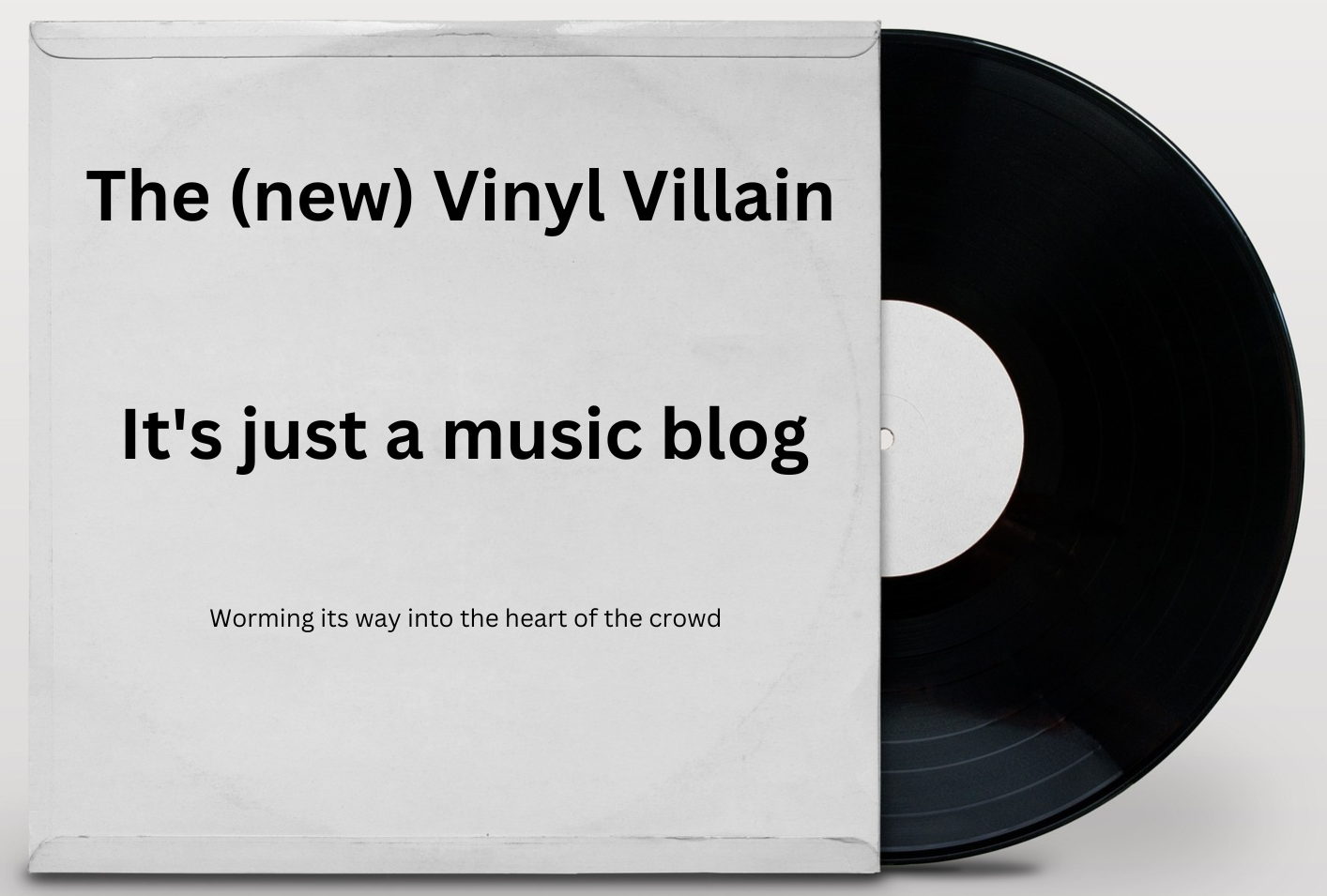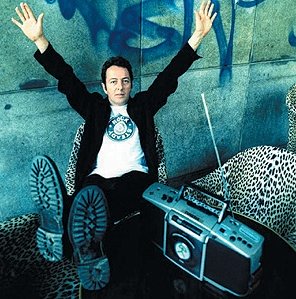A GUEST POSTING FROM DAVE MARTIN

My ICA of Joe Strummer was deliberately split into two parts, not just in the spirit of a vinyl compilation, but also in recognition that post Clash, Joe’s musical career had two mainstream parts, with the self-titled ‘Wilderness Years’ making a span of ten years from around 1989 onwards. During this time, due to label wrangles, the only music being released was mostly on soundtrack albums, and that is if there was a release at all. This OCD ep tips a toe into the pool of music which Joe recorded during this decade.
1 Afro Cuban Be-Bop – Joe Strummer & The Astro Physicians
From the soundtrack of the Aki Kaurismäki 1990 movie “I Hired A Contract Killer” which Joe also appeared in. The only official release of this track I can find from the original date is a Finnish promo single which was released in limited numbers. This is a pity, as this is one of those charming songs Joe did where you don’t know what to expect, and when you hear it, it’s not what you were expecting. The actual recording was quite rushed, as Joe was producing The Pogues Hell’s Ditch album at the same time, and these guys are the Astro Physicians on this recording. Thankfully, this track eventually saw a proper release on ‘Just Look Them In The Eye’, a five disc Pogues compilation which is well worth seeking out, not just for this track, but for so many more.
2 Pouring Rain – Joe Strummer
Although appearing on the unreleased soundtrack of 1993’s “When Pigs Fly”, this song actually dates back to the dying days of The Clash Mark II, a live version of which can be heard on “The Future Is Unwritten”. This song is sometimes referred to as a ‘lost classic’ in the Clash canyon, although to be perfectly honest it isn’t quite that, although it does stand head and shoulders above all of ‘Cut The Crap’ with the exception, perhaps, of ‘This Is England’. It’s hard to tell if the lyrics are autobiographical, but “the sun won’t shine my way again, lucky moon was on the wane, oh I’ll never see a star again, in the pouring, pouring rain,” seems to be telling a story which is every bit as worth investigation as the film it was eventually used in.
3 Generations – Electric Dog House
Taken from the album ‘Generations 1: A Punk Look at Human Rights’, Electric Doghouse was a short lived band which included Seggs from the Ruts and Rat Scabies from…, come on, you know! The plan for the band came about when Rat and Joe were working on “Grosse Point Blank” and had attended a Ministry gig in the presence of Timothy Leary. It’s hard to believe that this track, recorded ‘live’ in the studio, was ever intended as the beginning of a long term plan, but more as the expression of a few individuals who’d been in the same circles for years and had come together with mutual feelings. However, as Rat admitted, it “never did pass go.”
4 MacDougal Street Blues – Jack Kerouac and Joe Strummer
From an album called ‘Kicks Joy Darkness’ which has been in and out of press, this is a Joe Strummer demo over a Jack Kerouac spoken poem. The musical merit may be questioned by some, but the adventure should not be missed. This track also begs the question, ‘Which punk rocker has recorded with two beat poets?’, as Allen Ginsberg is another Joe has worked with. Of course, Ginsberg was alive when he appeared on Combat Rock, and the feel of this track is that Jack and Joe are in completely different places, both time and location.
5 War Cry – Joe Strummer
John Cusack had asked Joe to score and pick the songs for the soundtrack of ‘Grosse Point Blanc’, and this is the one track which was eventually released from the original score, albeit on the GPB 2 soundtrack album. The remaining tracks are, so far, and as far as can be seen, unreleased, but ‘War Cry’ serves to show a way forward in the midst of a soundtrack featuring music from the 80s for the main part. Richard Norris worked with Joe on the soundtrack score, and also co-wrote and produced ‘Yalla Yalla’ and ‘Sandpaper Blues’ for the subsequent Mescaleros album ‘Rock Art and the X-Ray Style’ and it is impossible to miss his (uncredited) contribution to this track.
All in all, I believe this is an ep of fairly obscure Joe Strummer material recorded during The Wilderness Years which helps to bridge the gap between his more involved periods in the general music scene. As a fan of him, I find it hard to be objective over the question of whether the obscure releases or the uncommercial sounds of the time make this small body of music inaccessible to most people, although it is certainly worthy of a listen.


